Composting is an inexpensive, natural process that transforms your kitchen and garden waste into a valuable and nutrient rich food for your garden. Compost will help improve soil structure, maintain moisture levels, and keep your soil’s pH balance in check while helping to suppress plant disease.
Ideally site your compost bin in a reasonably sunny spot on bare soil – it makes it very easy for beneficial microbes and insects to gain access to the rotting material. It also allows for better aeration and drainage, both important to successful composting.
Learn how to turn your food waste into compost and improve your garden soil quality with our essential guide to composting.
What is compost and how is it made?
Compost is decomposed organic matter, such as vegetable and fruit peelings or garden waste, such as twigs, leaves and grass which is rotted down over a period of time to create a natural and nutritious fertiliser for your garden or allotment.
Create a compost area
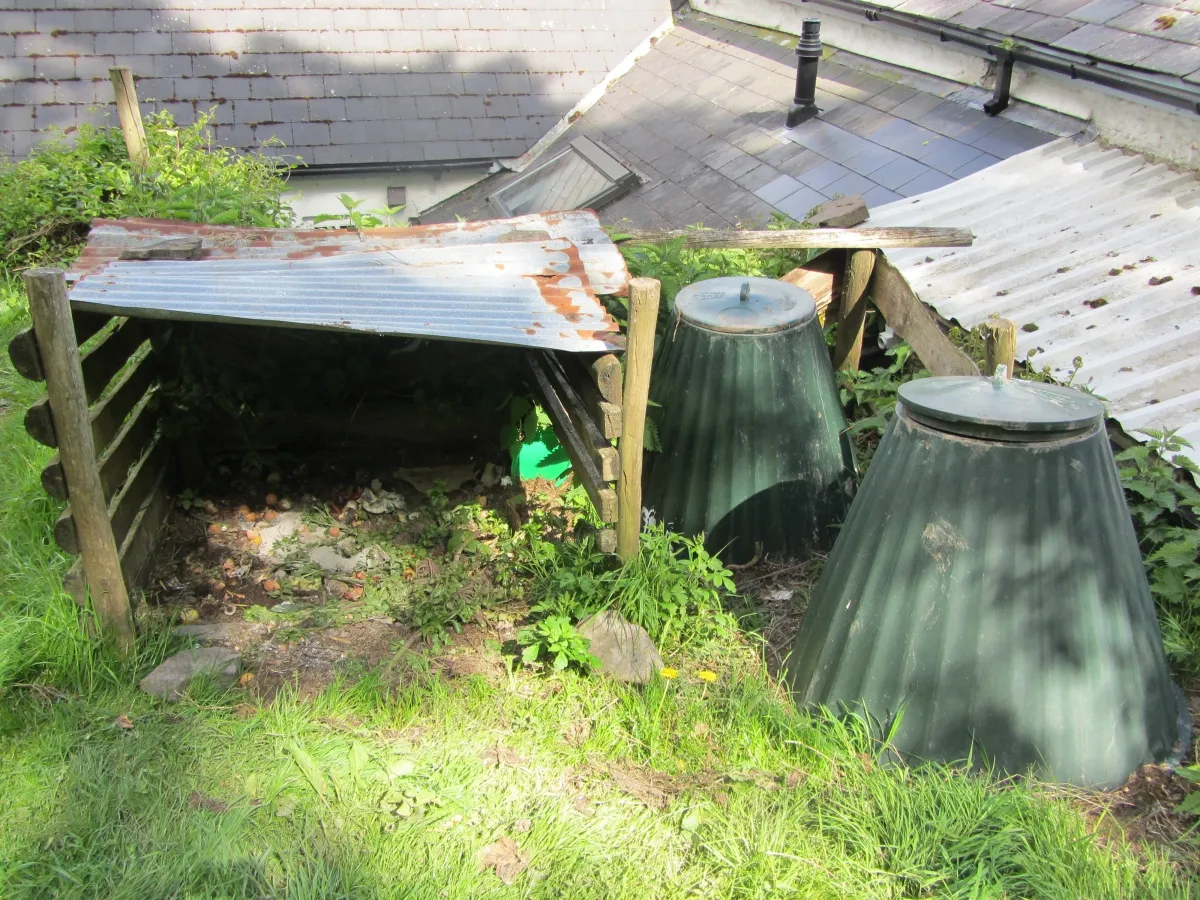
You can't have too many compost bins. Here I have one big compost bin open to the elements and two covered plastic bins. Organic material starts in the open bin where I can mix woody material with grass clippings and kitchen waste before being shifted into one of the covered bins when one of them becomes empty. These covered bins intensify the decaying process but the material inside needs to be turned regularly to ensure plenty of oxygen reaches the organisms doing all the 'rotten' work.
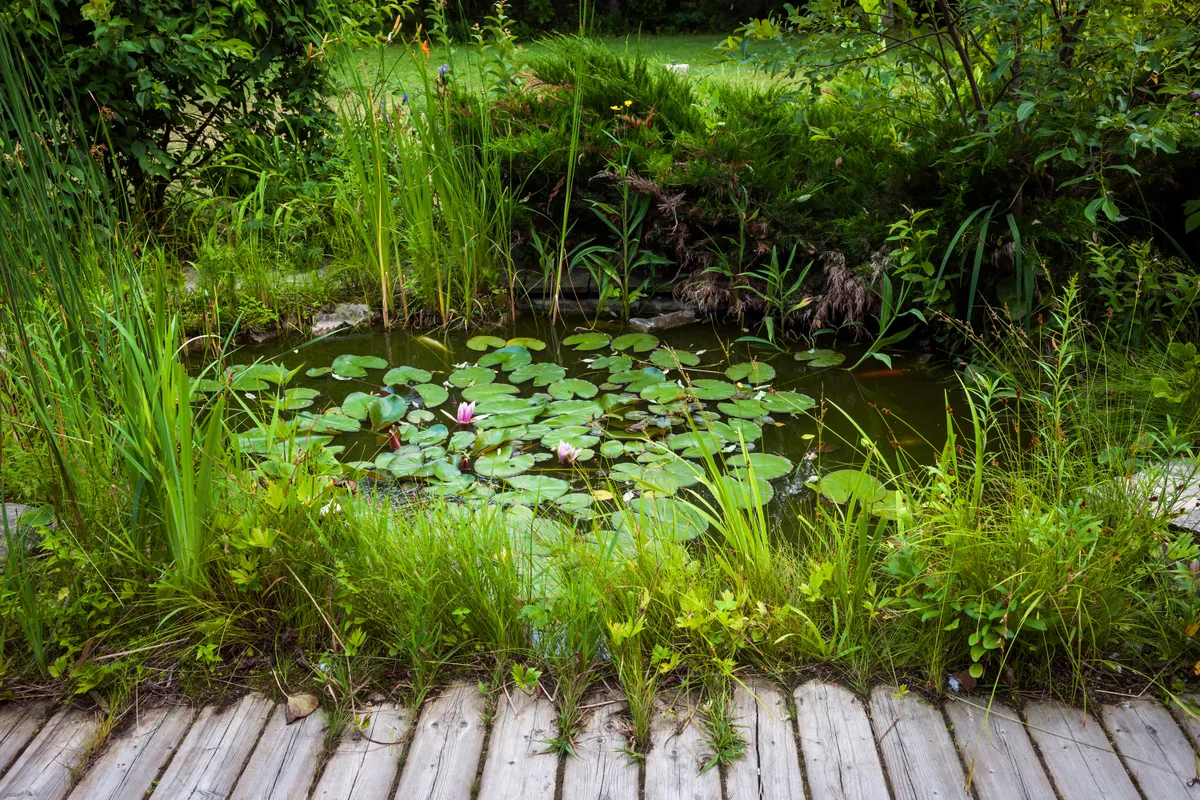
Allow six months for unrotted matter to turn to compost
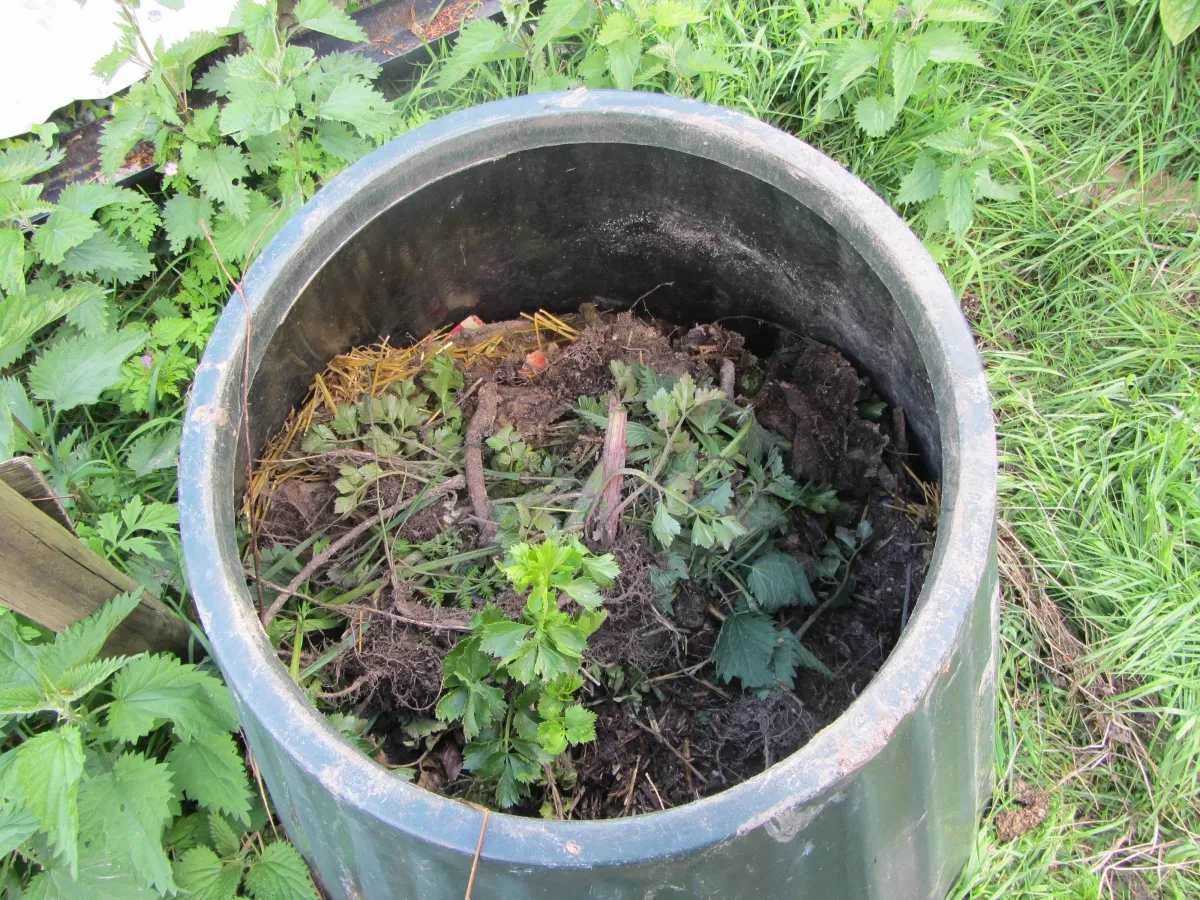
After being mixed in the open bed, a full load of organic matter goes into a rapid composter. It may take up to six months to rot down – in the meantime, it becomes a haven for a huge range of wildlife, from ants nests and slugs to slow worms and wood mice.
Speed up the process by turning your compost weekly
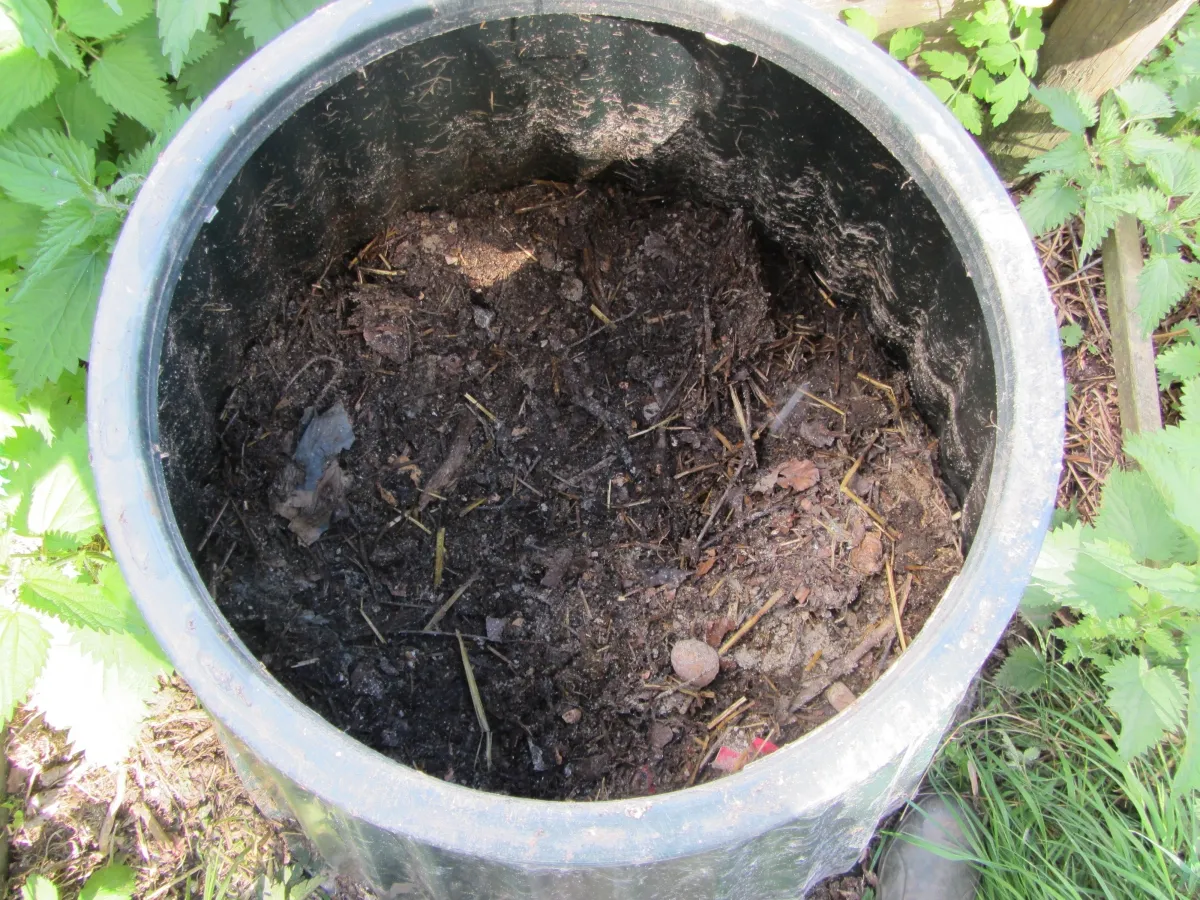
It can take six months for a bin full of compost to rot down enough to be spread on the veg bed. You can speed up the process by turning the material every week with a fork. Some champion composters also recommend peeing into the bin – easier for men, of course. The finished compost should be crumbling and pleasant smelling – quite surprising considering the material that went into it – in this case, a lot of chicken droppings.
Create a DIY fertilizer using nettles
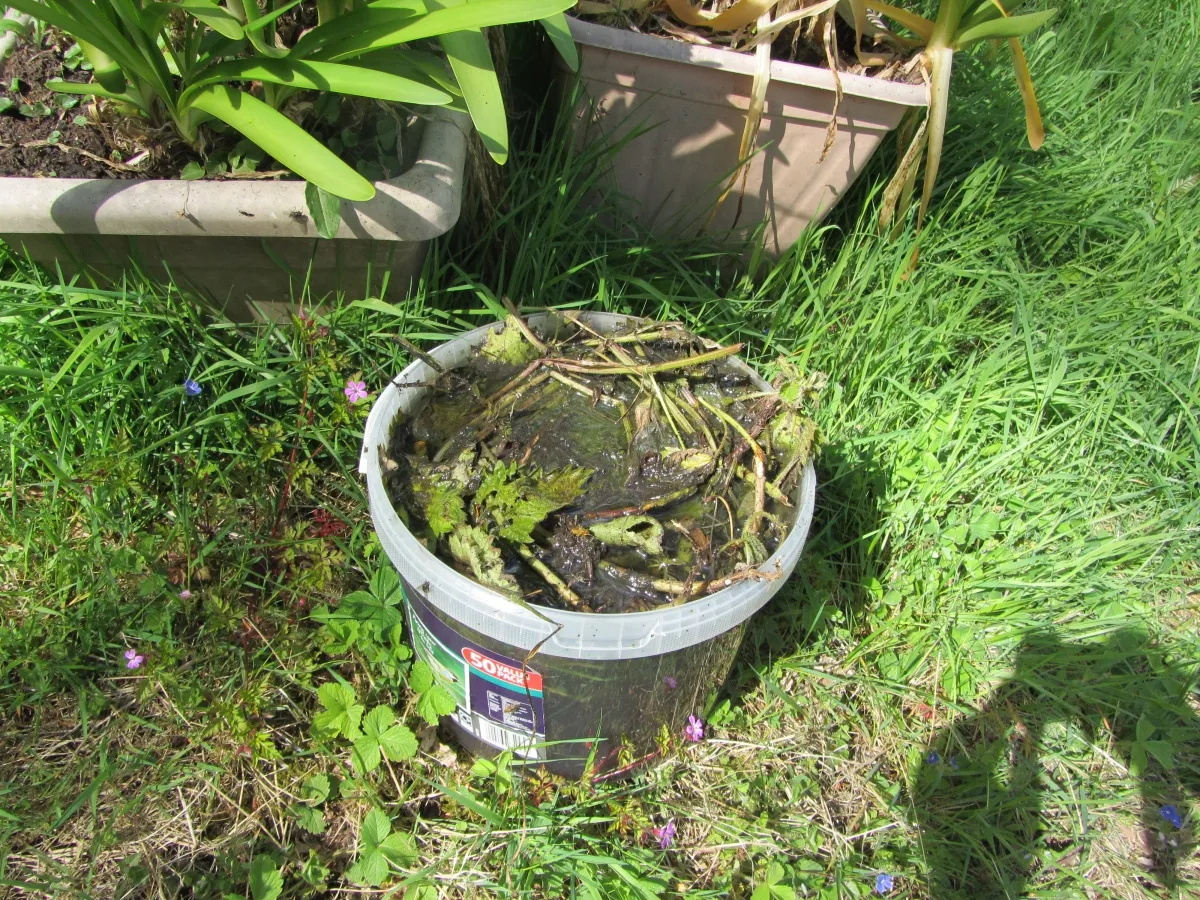
Gardeners often look at patches of nettles with disgust but they have a terrific number of uses. The early, smallest leaves can be wilted like spinach or blitzed into a soup. Several butterfly and moth species use nettles as food plants – and so can we in a way. Fill a bucket with nettles – stuff in as many as you can. Then fill with water, or for those who live in Wales, simply let the rain fill it. Within 10 days you'll have a thick dark brown liquid – rich in nitrogen and smelling like a heap of manure. Diluted with water (10 parts water to 1 part nettle juice) it makes a fantastic free fertilizer. A great way to recycle a nuisance plant.
What can and can't you compost?
To make the best compost aim for a balance of 50% greens and 50% brownsin your compost bin to get the right mix.
‘Greens' are quick to rot and provide important nitrogen and moisture, examples include:
- Vegetable peels and stalks
- Coffee grounds
- Cut flowers
- Fruit peelings and pulp
- Fruit seeds
- Grass mowings
- Hay
- Hedge clippings
- House plants
- Ivy leaves
- Nettles
- Poisonous plants
- Soft prunings and plant debris
- Tea leaves and bags
- Vegetable peelings and pulp
‘Browns’ are slower to rot, provide carbon & fibre and allow air pockets to form, examples include:
- Autumn leaves
- Cardboard
- Corn starch liners
- Cotton towels
- Cotton wool
- Egg boxes
- Egg shells
- Natural corks
- Nuts
- Paper bags
- Straw
- Sweetcorn cobs
- Thorny prunings
- Tomato plants
- Used kitchen paper
- Vacuum cleaner contents
- Wood ash
- Wool
Keep this out! Certain things should never be placed in your compost bin and will attract rodents such as rats and mice as well as being damaging to the environment and wildlife.
- Bones
- Cooked food scraps
- Cat litter
- Cigarette ends
- Coal ash
- Dairy products
- Disposable nappies
- Dog faeces
- Dog food
- Drink cartons
- Meat and fish scraps
- Cooking oils
- Soiled tissues
Garden waste
When garden waste is recycled it is transformed into nutrient-rich soil conditioner.
Most types of garden waste can be recycled, including bark, flowers, grass and hedge cuttings, leaves, plants, small branches, twigs and weeds.
If you are unable to compost at home, you can take it to your local garden waste recycling point or put it into your garden waste collection scheme, if you have one, where it will then be taken to a central composting facility to be processed.
Food Recycling
Waste food has a big impact on climate change as most of it ends up in landfill sites where it rots and releases methane into the environment. But some food waste, such as egg shells, banana skins and tea bags, is inevitable.
If you live in an area that has a local food waste recycling collection service, you can use this to dispose of anything you can’t eat or compost at home.
A food waste caddy in your kitchen can help you to separate out your food waste for recycling and composting. This can be emptied into your compost bin or council food waste bin every couple of days.
Your council may recommend that you line your food waste caddy with a liner or newspaper. Only use liners that are recommended by your council as some may not break down in the composting process.
